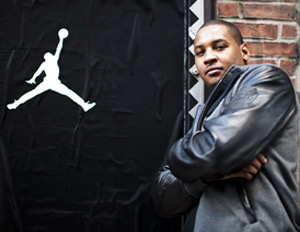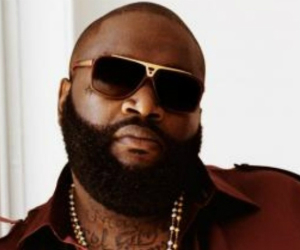Filed under: Interviews, Professional Profiles, Personal Finance, Careers
Boost Mobile President Matt Carter tells why $50 cell phone service is a deal most people won’t refuse.
 As a kid in Boston, MA, Matt Carter looked up to the local post office clerk. Today an entire company looks for his stamp of approval before any decisions are finalized. The first African American president of a major telecommunications company, Carter leads Boost Mobile, a division of Sprint Nextel. As president, he is responsible for the business’ marketing, product development and finance teams. Despite hailing from the City of Champions, leading Boost to a whopping $600 million in new revenue – in less than two years – was no easy feat. The telecommunications brand was in an oversaturated niche market and lagging in the race against its competitive set when Carter took the helm. Carter recently talked to Black Voices about how he was able to revitalize the failing brand, and shared his insights on how African Americans can compete in corporate America. Matt wants us to know why it’s still important for black business people to create a league of our own to compete in — as we win in new fields.
As a kid in Boston, MA, Matt Carter looked up to the local post office clerk. Today an entire company looks for his stamp of approval before any decisions are finalized. The first African American president of a major telecommunications company, Carter leads Boost Mobile, a division of Sprint Nextel. As president, he is responsible for the business’ marketing, product development and finance teams. Despite hailing from the City of Champions, leading Boost to a whopping $600 million in new revenue – in less than two years – was no easy feat. The telecommunications brand was in an oversaturated niche market and lagging in the race against its competitive set when Carter took the helm. Carter recently talked to Black Voices about how he was able to revitalize the failing brand, and shared his insights on how African Americans can compete in corporate America. Matt wants us to know why it’s still important for black business people to create a league of our own to compete in — as we win in new fields.
What led you to Sprint?
I started my career off in marketing. I had worked for Bristol Meyers and Coca-Cola in New York in a variety of marketing positions on a global basis. I got recruited by Sprint three years ago to run their customer management group and when the new CEO came aboard he tapped me to go run Boost Mobile, a division of Sprint. I’ve been at Boost for 18 months, really focusing on revolutionizing the wireless industry.
What made you accept the position as President of Boost Mobile?
It brought together all of my experience in leadership, marketing, sales and technology. In addition, at that point in my career I was ready to lead a major division of a company.
What are some of the challenges of your position?
Typically when you’re coming in, you’re a change agent, but it didn’t take me long to help them understand that they needed to evolve. I had to put my foot down – a skill I learned from being the oldest child in a large, loving family. I let them know that the path we were on would lead to extinction. We had to figure out how to grow this business, and decided to create a brand that would be the advocate for the consumer. We realized that at the end of the day people are looking for simplicity. Think about it. The one bill you open up with trepidation every month is your wireless bill. You think you’re paying $49, but that turns into $65. So that was the opportunity: Let’s simplify it. So, we created a flat fee system of $50.
What experiences helped equip you for such a powerful role?
I was the oldest of five, so it was instilled in me early on that I had to set the example for everyone. That made me realize the importance of discipline and sacrifice. When you’re the oldest you’re constantly looking out for folks and I carry that with me today; I look out for my team. I also earned a degree in communications from Northwestern and an MBA from Harvard. Plus, I have more than 20 years of experience working with companies like Bristol Meyers and Coca-Cola.
What pivotal moment led you to enter the business world?
My first student loan bill. I was like, “how am I going to pay for this?” I went to Northwestern because I wanted to be a director. When I graduated I did what most kids do: I went to LA and became a waiter. My father couldn’t fathom how I could go to school then wait tables. I felt bad and eventually came home and got a job working as a supervisor at a factory where my mother was employed. I got a good taste of business there. I enjoyed motivating people and I liked competing. I gravitated towards marketing because it coupled my practical and creative sides.
Finance Blogger S. Tia Brown Interviews Boost Mobile President Matt Carter
When did your dreams change from wanting to be a mail man, or a job similar to your role models growing up?
When I got to Harvard I realized that I was holding my own. Along the way you start to see that the privileged students are not any brighter or any better, so your confidence level begins to grow and you start thinking bigger. Going to Harvard raised my expectations about the possibilities of what I could do. I thought, ‘I could be the president of the United States.’ That was liberating.
Fierce Wireless magazine named you No. 25 on their list of Most Powerful People in Wireless. You are also the only African American. How does that feel?
I’m very humbled and appreciative of the recognition, but it’s reflective of what the team has done. In addition, I’ve gone through a lot of ups and downs in my career. You’re going to find people who still view your race as a stigma. People will do things to you because you’re not part of the “club.” You have to have the internal fortitude to maintain your composure when you’re faced with things meant to break you.
What’s next for Boost Mobile?
We’re the fastest growing wireless brand; we’ve acquired 1.7 million new customers in the last quarter. People are responding because there’s finally a product out there making things simple — this is not about economics or credit worthiness. We believe that we need to continue to broaden the appeal of our device portfolio. But I can’t reveal the new products that are on the radar.
Your team has taken a product initially created for a niche market and made it mainstream. Did you have to create a different marketing strategy to appeal to the masses?
Boost has a deep legacy in the African American community; we don’t want to abandon that. We want to build on it. Everyone, regardless of your culture, race or sex, is looking for value. So if you can get a $50 plan with unlimited, voice, web and text nationwide [you’ll want it]. It has nothing to do with skin color — only the color green.
A lot of marketing campaigns geared towards African Americans perpetuate stereotypes. How do you feel about the use of the typical images of blacks in advertising campaigns?
I’m always bothered by commercials that have people dressed up in the church robes, singing and dancing, like we’re still out of some minstrel show. You certainly have to be sure that there are messages out there that resonate with your target audience, but you’ve got to figure out how to reflect them smartly. You don’t want to turn people away. Our goal was to try to figure out how we could be relevant to a sort of rainbow coalition of clients.
Speaking of marketing, it seems like you’ve been able to be stand out strongly amongst your peers, a great example of self-marketing. Why do you think Sprint recruited you?
You’ve got to be known for doing something. I always look at people’s resumes and they are all over the place. What is your brand? What do you stand for? Mine is deeply rooted in marketing, so I am perceived to be a highly accomplished marketer who also demonstrates the ability to work across a variety of industries. I’ve worked in pharmaceuticals, telecommunications and financial services. My advice is to really be good at something and demonstrate that across a variety of industries so you leave yourself open for other opportunities.
Unemployment is soaring and people are looking for career opportunities in new markets. What is your suggestion for anyone interested in the telecommunications industry?
I don’t see a lot of African American engineers. I think we need more people with technical skills; that’s where the high-paying jobs are, in technical development. The engineers are the new artists and we’re not there.
You have a great job and a successful career, but you’re still working on entrepreneurial ventures, like helping to create Ameritales (a historical cartoon series). Why divide your time?
You can’t expect that you’re going to go work at a company and be there until you retire. We have to be smarter as a group around creating opportunities. African Americans are very creative but we haven’t parlayed it into true economic growth. I don’t know if it’s fear or a lack of mentoring.
What tips do you have for those looking to start their own businesses?
First of all, you must be willing to take a chance. Then, there are three key elements to being a successful entrepreneur:
1. Preparation: People may want to start a company, but don’t know a thing about running one, like how to read a balance sheet or income statement. You should use your time while working for others to gather as many skills as possible.
2. Network: Build a network of people that you will eventually need.
3. Talent: Use all your talents to go out and create something. And don’t limit yourself to things like soul food restaurants and cleaning businesses. We now have a generation of African Americans with more exposure and training. We can create the next Google.
What’s next for you?
I plan to continue to grow, learn and see what the future holds. I’m under no illusion about life in the corporate world. I enjoy what I do today but I’m well prepared for many things.
 A trained life coach, S. Tia Brown has spent the last 10 years following her passion for journalism as an editor, writer and TV correspondent. Brown has worked for CNN, E!, MSNBC, the NY Daily News, Essence and Black Enterprise. Most recently she served as Senior Editor for In Touch Weekly magazine. Check out her advice column ‘Do Better, Be Better’ at www.tiabrown.com.
A trained life coach, S. Tia Brown has spent the last 10 years following her passion for journalism as an editor, writer and TV correspondent. Brown has worked for CNN, E!, MSNBC, the NY Daily News, Essence and Black Enterprise. Most recently she served as Senior Editor for In Touch Weekly magazine. Check out her advice column ‘Do Better, Be Better’ at www.tiabrown.com.
Permalink | Email this | Linking Blogs | Comments
 By claiming the No. 1 spot on the NBA’s highest selling jersey list, Carmelo Anthony, who is having an MVP-caliber season, became the first Knicks player to see the top spot since the list was announced beginning in 2001.
By claiming the No. 1 spot on the NBA’s highest selling jersey list, Carmelo Anthony, who is having an MVP-caliber season, became the first Knicks player to see the top spot since the list was announced beginning in 2001.













 Reebok Easytone Shoes are the hot topic of the hour on sites as diverse as gossip and business blogs. The flavor of the Reebok Easytone debate is not over the shoes themselves — which
Reebok Easytone Shoes are the hot topic of the hour on sites as diverse as gossip and business blogs. The flavor of the Reebok Easytone debate is not over the shoes themselves — which 
 As a kid in Boston, MA, Matt Carter looked up to the local post office clerk. Today an entire company looks for his stamp of approval before any decisions are finalized. The first African American president of a major telecommunications company, Carter leads Boost Mobile, a division of Sprint Nextel. As president, he is responsible for the business’ marketing, product development and finance teams. Despite hailing from the City of Champions, leading Boost to a whopping $600 million in new revenue – in less than two years – was no easy feat. The telecommunications brand was in an oversaturated niche market and lagging in the race against its competitive set when Carter took the helm. Carter recently talked to Black Voices about how he was able to revitalize the failing brand, and shared his insights on how African Americans can compete in corporate America. Matt wants us to know why it’s still important for black business people to create a league of our own to compete in — as we win in new fields.
As a kid in Boston, MA, Matt Carter looked up to the local post office clerk. Today an entire company looks for his stamp of approval before any decisions are finalized. The first African American president of a major telecommunications company, Carter leads Boost Mobile, a division of Sprint Nextel. As president, he is responsible for the business’ marketing, product development and finance teams. Despite hailing from the City of Champions, leading Boost to a whopping $600 million in new revenue – in less than two years – was no easy feat. The telecommunications brand was in an oversaturated niche market and lagging in the race against its competitive set when Carter took the helm. Carter recently talked to Black Voices about how he was able to revitalize the failing brand, and shared his insights on how African Americans can compete in corporate America. Matt wants us to know why it’s still important for black business people to create a league of our own to compete in — as we win in new fields.

 A trained life coach,
A trained life coach,



